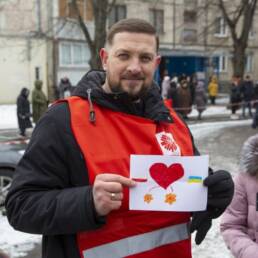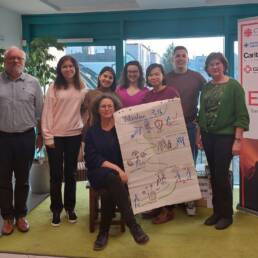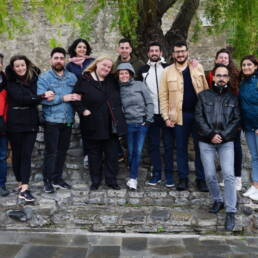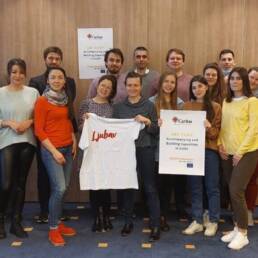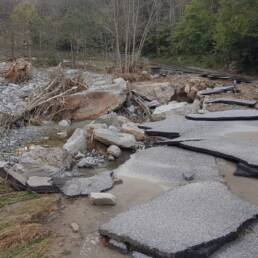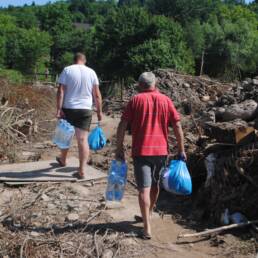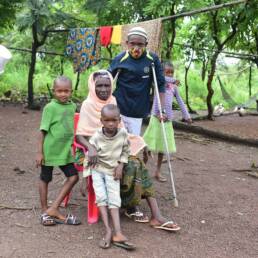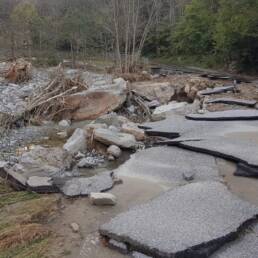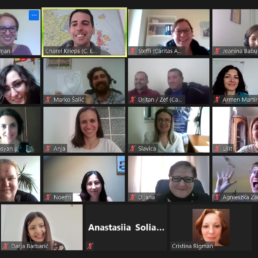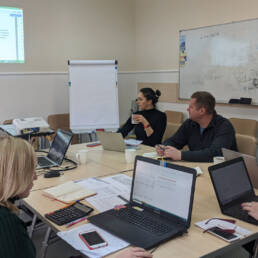Author
Dijana Muzička
Project Manager
Caritas Bosnia and Herzegovina
In 2018 alone, Bosnian authorities counted more than 11,000 people crossing the border from Serbia or Montenegro to Bosnia and Herzegovina. The vast majority of migrants only consider Bosnia and Herzegovina to be a transit country on their way to the EU.
Their intention is to continue to Croatia and, to a lesser extent, also to Hungary and later to other EU countries, such as Germany or Sweden. Because of the difficulty of crossing EU-borders, many migrants are currently stuck in Bosnia and Herzegovina. In order to gain access to the services provided by the Bosnian government, some migrants officially start the procedure to seek asylum in the country.
Thanks to the initial support delivered by CRS (Caritas in the US), Caritas Bosnia and Herzegovina has been providing food to the asylum centres in Delijaš and Salakovac. At the same time, Caritas has been assessing the situation in other parts of the country and coordinating with other NGOs and state actors to elaborate an appropriate response. Together, national and diocesan offices launched an emergency response adapted to the needs in the field.
Caritas Europa representatives Marc Somers and Charel Krieps could observe themselves the disastrous conditions in which some of the migrants are currently living in different parts of Bosnia and Herzegovina. In Sarajevo, migrants and refugees are living under the trees close to the railway and bus station, sitting in small groups in front of the post office where they can use free Wi-Fi provided by a local restaurant. This remains their only way to keep in touch with family and friends at home. In Salakovac, in the west part of the country, not far from Mostar, the migration centre already existed before the current influx of refugees and migrants. It currently houses families with many children who have now started the new school year in Herzegovina. The diocesan Caritas of Mostar, in coordination with other stakeholders, has been involved from the beginning in the distribution of non-food items and food complements for small children.
However, the majority of migrants are located in Una Sana Canton, close to the Croatian border, in the north-west of Bosnia and Herzegovina. IOM and UNHCR are coordinating the response for several migrant centres. The former Hotel Sedra, in Cazin, is currently being rehabilitated to welcome up to 400 of the most vulnerable migrants. Around 200 families with children are living in the building where the tap water source is infected by Escherichia coli and other bacteria. UNHCR is responsible for medical support and already took first steps in providing clean water. In Bihać, some kilometres away, an unfinished and long-abandoned student dormitory has been transformed into a make-shift shelter for more than 800 migrants, the vast majority of whom are young men. Many of them currently sleep on the ground and when it rains the water enters the building through the leaking roof. Temporary showers and toilets have been installed in containers in front of the building, which is still not up to international humanitarian shelter standards. IOM plans to prepare the building before the arrival of winter, but time is running out.
In Velika Kladuša, in the community of Trnovi, the local authority made available a meadow and a single generator working only couple of hours per day where hundreds of migrants are living in tents in substandard conditions, without safe access to water or sanitary installations.
The national Caritas of Bosnia and Herzegovina is in discussion with the coordinating bodies to install a laundry system in Una Sana Canton to be able to the wash clothes and blankets of the thousands of migrants present in the region. This will allow a clean and healthier use of personal clothes, which is fundamental in restoring dignity and appropriate hygienic conditions.
Together with that, the national and diocesan Caritas are regularly adapting their activities to the changing needs. They are now planning to provide cream for skin diseases common among migrants as well as special food to be distributed by the Red Cross.
While leaving the centre in Bihać, a young girl approached the two representatives of Caritas Bosnia and Herzegovina. She recognised them from when they visited the other centre in Delijaš. She added: “I am doing alright. My family and I are going to Italy now!” Or at least they will try…


